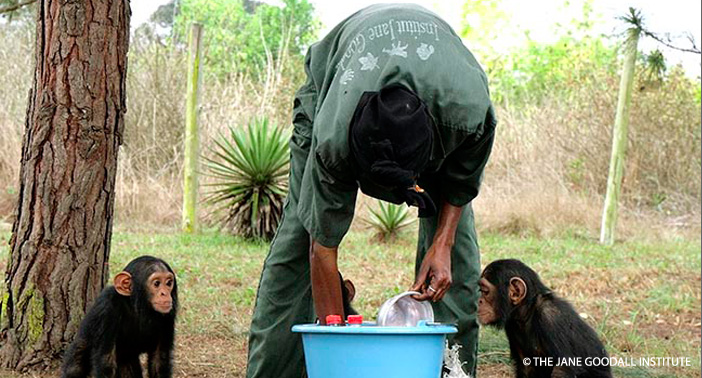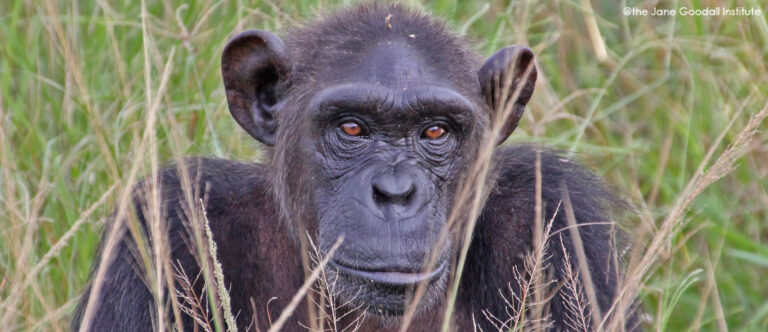Across the continent of Africa, wildlife sanctuaries are working hard to better the lives of their native animals. From improving electrical lines to protect monkeys from accidental electrocution to educating communities about the misconceptions of traditional medicine using ape bones, the responsibilities of a sanctuary extend well beyond helping injured and orphaned animals. While each sanctuary faces unique trials, having a means to communicate and share knowledge of successes and challenges with one another can save each sanctuary effort and resources. This is where the Pan African Sanctuary Alliance (PASA) comes in.

Founded in 2000, PASA is a non-profit charity with 22 member sanctuaries across 13 African countries, including Chimp Eden (the Jane Goodall Institute’s South African sanctuary) and Tchimpounga Chimpanzee Rehabilitation Center (the Jane Goodall Institute’s Congo sanctuary, and the largest chimpanzee sanctuary in Africa). While PASA’s members are very diverse, they share a main goal: to provide a safe and secure home for African primates in need. Joining the Alliance requires complying with an extensive list of requirements including organizational planning, a strong financial base, high standards of veterinary treatment and animal care, and conservation education programs.

PASA advocates for its member organizations, provides vital support, and works with them to raise awareness internationally about wildlife conservation and animal welfare. The combination of PASA’s global network and its member organizations’ local expertise and experience uniquely positions the Alliance to produce lasting changes to protect Africa’s great apes and monkeys.
In December 2016, PASA completed an extensive survey of its member wildlife centers. The results show that the centers conduct a wide range of education programs, community development projects, and other work to protect wild primate populations, in addition to rescuing animals from wildlife trafficking and the bushmeat trade and providing long-term care.

Since many of the countries that PASA members reside in are impoverished, providing job opportunities helps sanctuaries to integrate into the local communities. PASA members currently employ 700 African staff. By supplying stable, fairly waged positions and investing intraining staff, over 3,000 animals have found a safe, secure place to call home at a PASA sanctuary.
The 22 wildlife centers’ education programs reach more than 500,000 people every year, and their sanctuaries host 153,000 visitors annually. Most of the centers have developed income-generating projects in neighboring communities and improve local agricultural practices, and many provide job skills training. These programs empower communities to break the cycle of poverty so they will no longer be compelled to illegally hunt primates or exploit protected land.

rescues monkey species such as baboons, sykes and vervets.
PASA’s members also protect wild primates more directly: most regularly send forest patrols into wildlife habitat, and members in seven countries have successfully worked with government agencies to establish new national parks and other protected areas.
This has all been accomplished in extremely challenging conditions. Fewer than 40% of PASA member organizations members have consistent access to the internet, fewer than 60% have consistent phone connections, and close to 20% lack reliable access to water.

The necessity and positive outcomes of these centers are enormous, and with such dedicated facilities and employees across 13 countries, it is clear that rescued animals have a fighting chance. It is the ultimate hope and goal however, that there will come a time when there is no need for sanctuaries in Africa. To get closer to this reality, it requires all of us supporting the many efforts of the sanctuaries and organizations working to educate communities, end illegal trade and bushmeat demand, and halt habitat destruction. It’s up to all of us.
The report on the census of PASA member organizations is available online https://www.pasaprimates.org/manuals-reports/ (please click on “2016 PASA Census Report)
To learn more and to support primate centers in Africa, please visit PASA’s website
https://www.pasaprimates.org



